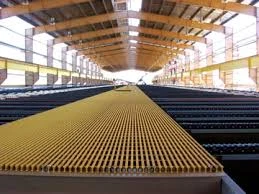
-
 Afrikaans
Afrikaans -
 Albanian
Albanian -
 Amharic
Amharic -
 Arabic
Arabic -
 Armenian
Armenian -
 Azerbaijani
Azerbaijani -
 Basque
Basque -
 Belarusian
Belarusian -
 Bengali
Bengali -
 Bosnian
Bosnian -
 Bulgarian
Bulgarian -
 Catalan
Catalan -
 Cebuano
Cebuano -
 China
China -
 China (Taiwan)
China (Taiwan) -
 Corsican
Corsican -
 Croatian
Croatian -
 Czech
Czech -
 Danish
Danish -
 Dutch
Dutch -
 English
English -
 Esperanto
Esperanto -
 Estonian
Estonian -
 Finnish
Finnish -
 French
French -
 Frisian
Frisian -
 Galician
Galician -
 Georgian
Georgian -
 German
German -
 Greek
Greek -
 Gujarati
Gujarati -
 Haitian Creole
Haitian Creole -
 hausa
hausa -
 hawaiian
hawaiian -
 Hebrew
Hebrew -
 Hindi
Hindi -
 Miao
Miao -
 Hungarian
Hungarian -
 Icelandic
Icelandic -
 igbo
igbo -
 Indonesian
Indonesian -
 irish
irish -
 Italian
Italian -
 Japanese
Japanese -
 Javanese
Javanese -
 Kannada
Kannada -
 kazakh
kazakh -
 Khmer
Khmer -
 Rwandese
Rwandese -
 Korean
Korean -
 Kurdish
Kurdish -
 Kyrgyz
Kyrgyz -
 Lao
Lao -
 Latin
Latin -
 Latvian
Latvian -
 Lithuanian
Lithuanian -
 Luxembourgish
Luxembourgish -
 Macedonian
Macedonian -
 Malgashi
Malgashi -
 Malay
Malay -
 Malayalam
Malayalam -
 Maltese
Maltese -
 Maori
Maori -
 Marathi
Marathi -
 Mongolian
Mongolian -
 Myanmar
Myanmar -
 Nepali
Nepali -
 Norwegian
Norwegian -
 Norwegian
Norwegian -
 Occitan
Occitan -
 Pashto
Pashto -
 Persian
Persian -
 Polish
Polish -
 Portuguese
Portuguese -
 Punjabi
Punjabi -
 Romanian
Romanian -
 Russian
Russian -
 Samoan
Samoan -
 Scottish Gaelic
Scottish Gaelic -
 Serbian
Serbian -
 Sesotho
Sesotho -
 Shona
Shona -
 Sindhi
Sindhi -
 Sinhala
Sinhala -
 Slovak
Slovak -
 Slovenian
Slovenian -
 Somali
Somali -
 Spanish
Spanish -
 Sundanese
Sundanese -
 Swahili
Swahili -
 Swedish
Swedish -
 Tagalog
Tagalog -
 Tajik
Tajik -
 Tamil
Tamil -
 Tatar
Tatar -
 Telugu
Telugu -
 Thai
Thai -
 Turkish
Turkish -
 Turkmen
Turkmen -
 Ukrainian
Ukrainian -
 Urdu
Urdu -
 Uighur
Uighur -
 Uzbek
Uzbek -
 Vietnamese
Vietnamese -
 Welsh
Welsh -
 Bantu
Bantu -
 Yiddish
Yiddish -
 Yoruba
Yoruba -
 Zulu
Zulu
fiberglass field tank
Understanding Fiberglass Field Tanks A Sustainable Solution for Water Storage
In recent years, the demand for efficient and sustainable water storage solutions has surged, driven by the need for resource conservation and environmental protection. One prominent solution that has emerged in this context is the fiberglass field tank. Renowned for their durability, versatility, and cost-effectiveness, fiberglass tanks have become a popular choice for agricultural, industrial, and municipal water storage applications. This article delves deep into the features, benefits, and usage of fiberglass field tanks, emphasizing their importance in modern water management strategies.
What Are Fiberglass Field Tanks?
Fiberglass field tanks are cylindrical containers made from reinforced plastic composites, specifically fiberglass. This composite material consists of a plastic resin reinforced with glass fibers, resulting in a lightweight yet highly durable product. Unlike traditional materials like steel or concrete, fiberglass tanks offer superior resistance to corrosion and degradation, making them an excellent choice for storing various liquids. These tanks can be manufactured in various shapes and sizes, tailored to meet specific storage needs.
Advantages of Fiberglass Field Tanks
1. Corrosion Resistance One of the primary advantages of fiberglass tanks is their inherent resistance to corrosive substances. Unlike metal tanks that can rust and degrade over time, fiberglass does not react adversely with most chemicals, ensuring long-term integrity and reliability.
2. Lightweight and Easy to Transport Fiberglass tanks are significantly lighter than their steel and concrete counterparts, facilitating easier transportation and installation. This lightweight nature allows for fewer structural supports, simplifying the setup process on-site.
3. Customization Fiberglass field tanks can be manufactured to various specifications, from size to shape and color. This customizability allows users to design tanks that perfectly fit their operational requirements, whether for agricultural irrigation, potable water storage, or wastewater treatment.
4. Cost-Effectiveness Although the initial investment might be higher compared to conventional materials, the long lifespan and reduced maintenance costs associated with fiberglass tanks make them a cost-effective solution in the long run. Their durability means fewer replacements and repairs over time, ultimately leading to significant savings.
fiberglass field tank

5. Environmental Benefits The production and use of fiberglass tanks align with sustainability efforts. Their lightweight characteristics mean reduced transportation fuel consumption, and their long lifespan contributes to less waste in landfills. Also, many fiberglass tanks are made from recycled materials, further promoting an eco-friendly approach to water storage.
Applications of Fiberglass Field Tanks
Fiberglass field tanks are employed across various sectors, showcasing their versatility
1. Agriculture Farmers often utilize fiberglass tanks for irrigation and water storage, helping optimize water usage and manage drought conditions more effectively. These tanks can store rainwater or recycled water for irrigation, thereby contributing to sustainable farming practices.
2. Industrial Use Industries requiring liquid storage for chemicals, fuels, or wastewater treatment frequently choose fiberglass tanks due to their corrosion resistance and customization options. They are particularly useful in locations with harsh environmental conditions or corrosive agents.
3. Municipal Water Supply Many municipalities utilize fiberglass tanks to store potable water, ensuring clean water supply for communities. Their durability and low maintenance make them a reliable choice for public water systems.
4. Fire Protection In fire-prone areas, fiberglass field tanks serve as essential components of fire suppression systems. They can hold large volumes of water for firefighting efforts, providing crucial resources during emergencies.
Conclusion
As global water demands continue to increase amid climate change and population growth, innovative solutions like fiberglass field tanks are becoming integral to effective water management. Their unique properties, such as corrosion resistance, lightweight design, and customization potential position them as a superior choice for various applications. By investing in fiberglass tanks, individuals, businesses, and municipalities can contribute to sustainable practices while ensuring reliable and efficient water storage. Embracing such technology not only supports immediate storage needs but also reflects a commitment to a more sustainable and resource-efficient future.









